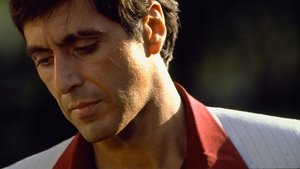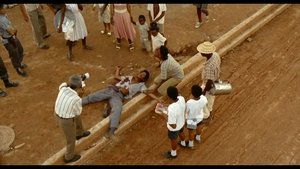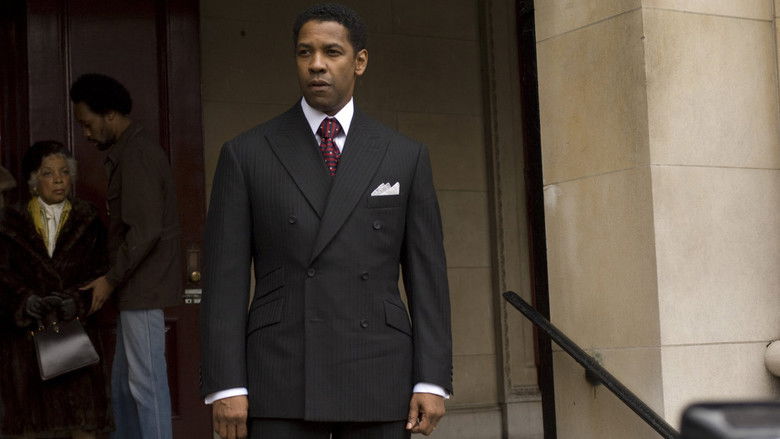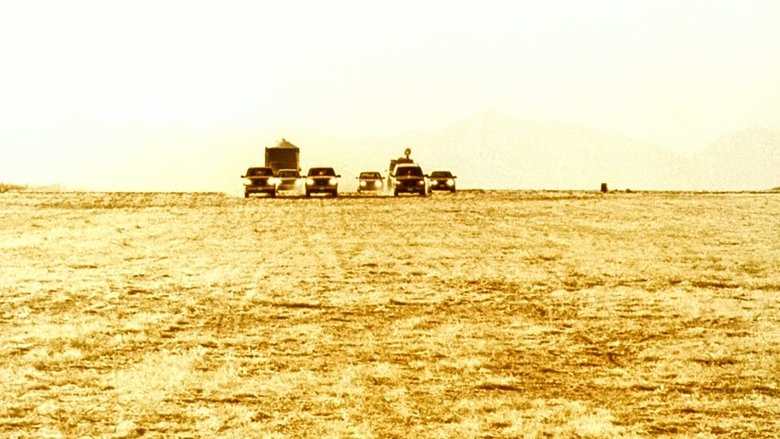Best movies depicting drug use and its impact
Explore compelling cinematic portrayals of drug use, addiction, and the complex world of the drug trade. These films offer powerful and often stark perspectives on this challenging topic. Delve into stories that range from harrowing personal journeys to sprawling crime sagas.



Cinema has long grappled with the multifaceted and often devastating subject of drugs. From the personal hell of addiction to the brutal realities of the global drug trade, filmmakers have explored this topic through various lenses, offering audiences unflinching looks at its human cost and societal impact.
Some films plunge deep into the psychological and physical toll of addiction, showing the difficult, often tragic, paths of those struggling with substance abuse. These narratives can be incredibly intense and emotionally challenging, forcing viewers to confront uncomfortable truths about desperation and survival.
Others focus on the vast and violent networks of the drug trade, depicting the rise and fall of kingpins, the intricate dance between law enforcement and cartels, and the corruption that often permeates every level. These movies frequently blend elements of crime thrillers, dramas, and even historical epics, showcasing the scale and complexity of this illicit world.
What unites many of these films is their willingness to tackle difficult themes head-on. They often feature powerful, transformative performances from actors portraying characters pushed to their limits. Whether through gritty realism, stylized crime sagas, or darkly comedic takes, these movies provide memorable and often cautionary tales. They serve not just as entertainment, but as important cultural artifacts reflecting on a persistent global issue. Prepare for a list that is as thought-provoking as it is intense, showcasing some of the most impactful cinematic explorations of drugs.
14. The Big Lebowski (1998)
The Coen Brothers' cult classic The Big Lebowski centers around Jeff 'The Dude' Lebowski, a laid-back slacker who just wants to bowl and gets entangled in a case of mistaken identity involving a millionaire, a kidnapping, and nihilists. While marijuana is a prominent element, primarily as a character trait of The Dude and his friends, the film's plot is not centered around the drug trade or addiction in the same vein as the other movies on this list. It's a quirky, philosophical comedy where drugs are more part of the atmosphere and character than the core conflict.

13. The Wolf of Wall Street (2013)
Martin Scorsese's outrageous black comedy The Wolf of Wall Street chronicles the rise and fall of stockbroker Jordan Belfort, played with unbridled energy by Leonardo DiCaprio. While the film's primary focus is on financial fraud and the excessive lifestyle of Wall Street in the 1990s, drug use is depicted as a constant and significant part of that world of debauchery and recklessness. The film portrays substance abuse as fueling the characters' relentless pursuit of wealth and pleasure, though it's more about the culture of excess than the drug trade itself.

12. Pulp Fiction (1994)
Quentin Tarantino's genre-bending masterpiece Pulp Fiction weaves together several interconnected stories involving L.A. criminals, including hitmen, a gangster's wife, and a boxer. Drugs feature prominently in several key plotlines, most notably the infamous overdose scene involving Uma Thurman's character. While not solely focused on the drug trade or addiction, substances are integral to the characters' lives and drive significant events within the non-linear narrative. The film's sharp dialogue, cool style, and iconic scenes solidified its place as a modern classic.

11. The Departed (2006)
Martin Scorsese's Oscar-winning crime thriller The Departed is set in Boston and follows an undercover state trooper infiltrating the Irish mob and a mole within the police force who is reporting to the mob boss. While the central conflict is about identity and betrayal within the criminal underworld and law enforcement, drugs are a significant commodity and plot device within the mob's operations. Featuring stellar performances from Leonardo DiCaprio, Matt Damon, and Jack Nicholson, it's a complex and intense drama where the drug trade plays a crucial role in the backdrop of the main story.

10. Fear and Loathing in Las Vegas (1998)
Terry Gilliam brings Hunter S. Thompson's infamous novel to life in the wildly surreal Fear and Loathing in Las Vegas. Johnny Depp stars as Raoul Duke (Thompson's alter ego) and Benicio del Toro is his attorney, Dr. Gonzo, as they embark on a drug-fueled road trip through Las Vegas in the early 1970s. The film is less about the drug trade itself and more about the chaotic, distorted experiences under the influence, reflecting the counter-culture disillusionment of the era. Gilliam's distinctive visual style perfectly captures the hallucinatory, gonzo journalism spirit of the source material.

9. Sicario (2015)
Denis Villeneuve's Sicario plunges viewers into the dark and morally ambiguous world of the war on drugs along the US-Mexico border. Emily Blunt stars as an idealistic FBI agent who is recruited to a government task force aimed at taking down a powerful drug cartel leader. The film is renowned for its intense atmosphere, stunning cinematography by Roger Deakins, and powerful performances from Blunt, Benicio del Toro, and Josh Brolin. It's a taut, suspenseful thriller that questions the lines between justice and vengeance in the relentless fight against organized crime.

8. American Gangster (2007)
Directed by Ridley Scott, American Gangster tells the true story of Frank Lucas, a seemingly low-key chauffeur who built one of the most powerful drug empires in Harlem during the 1970s, importing heroin directly from Southeast Asia. Denzel Washington delivers a commanding performance as Lucas, while Russell Crowe plays the detective determined to bring him down. The film is a stylish and engrossing crime drama that explores the business of drug trafficking and the cat-and-mouse game between the criminal mastermind and the honest cop.

7. Narcos (1992)
Narcos, while often viewed as a series, is a compelling deep dive into the world of drug trafficking, particularly focusing on the rise of Pablo Escobar and the Medellín Cartel in Colombia. Across its initial seasons, the show grippingly portrays the efforts of law enforcement to combat the drug trade, the immense power and brutality of the cartels, and the complex political and social landscape of the era. Wagner Moura's portrayal of Escobar is particularly captivating, bringing a chilling humanity to the notorious figure. It's a historically-rooted drama that pulls no punches in depicting the scale and impact of the drug war.
6. Traffic (2000)
Steven Soderbergh's Traffic is a sprawling, multi-narrative drama that provides a complex look at the illegal drug trade from various perspectives: a newly appointed drug czar, two DEA agents, a wealthy suburban wife, and a Mexican police officer. The film masterfully weaves together these disparate storylines, using distinct color palettes for each to visually separate them. With an impressive ensemble cast including Michael Douglas, Benicio del Toro (who won an Oscar), and Catherine Zeta-Jones, it offers a compelling and nuanced examination of the global drug war and its far-reaching consequences.

5. City of God (2002)
City of God is a breathtaking and brutal film from Brazil that depicts the growth of organized crime and drug dealing in the Cidade de Deus suburb of Rio de Janeiro between the 1960s and 1980s. Directed by Fernando Meirelles and Kátia Lund, and based on the novel by Paulo Lins, the film follows the lives of several characters, most notably Rocket, a young man trying to escape the cycle of violence by becoming a photographer. Shot with incredible energy and featuring powerful performances from its largely non-professional cast, it offers a raw and unflinching look at life in the favelas.

4. Scarface (1983)
Brian De Palma's Scarface is a cinematic powerhouse featuring Al Pacino in his legendary role as Tony Montana, a Cuban refugee who arrives in Miami and rises to become a ruthless drug kingpin. Though initially met with controversy due to its violence and language, the film has become a cultural icon, known for its over-the-top style, quotable dialogue, and Pacino's explosive performance. It's a classic rags-to-riches-to-ruin tale that explores the dark side of the American Dream through the lens of the cocaine trade in the early 1980s.

3. Blow (2001)
Blow tells the incredible true story of George Jung, portrayed by Johnny Depp, an American cocaine trafficker who became a key player in the US drug market during the 1970s and 80s. The film charts his rise from a small-time marijuana dealer to a major importer for the Medellín Cartel. Directed by Ted Demme, the movie offers a fascinating look at the scale of Jung's operation and the personal cost of his criminal empire. With a great supporting cast including Penélope Cruz and Ray Liotta, it's a compelling biographical drama about ambition, excess, and the inevitable fall from grace.

2. Trainspotting (1996)
Danny Boyle's Trainspotting is a landmark film from the 90s, a darkly comedic yet unflinchingly honest look at heroin addiction in Edinburgh. Starring Ewan McGregor in a breakout role as Renton, the film introduces us to a group of friends navigating their chaotic lives fueled by drugs and a desire to escape societal norms. Boyle's energetic direction, cool soundtrack, and sharp dialogue (including the iconic 'Choose Life' monologue) make it incredibly stylish, but it never shies away from the grim realities of addiction. It's a film that perfectly balances its edgy humor with moments of profound sadness and despair, capturing the spirit of its time.

1. Requiem for a Dream (2000)
Requiem for a Dream is an absolutely shattering, visceral experience directed by Darren Aronofsky. It's not just a film about drugs; it's a relentless dive into the all-consuming nature of addiction and how it corrupts dreams and lives. The film follows four different characters whose desires lead them down a path of substance abuse, and Aronofsky's kinetic editing and use of split screens, combined with Clint Mansell's haunting score performed by the Kronos Quartet, create a truly unsettling and unforgettable journey. It's a film that stays with you long after the credits roll, serving as a powerful, albeit difficult, exploration of aspiration and despair.

